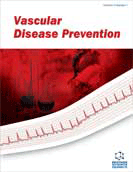Abstract
Atherosclerosis is the result of vascular injury followed by an inflammatory and fibroproliferative response and large number of growth factor, cytokines and vasoregulatory molecules participate in this process. This paper presents a brief review of some mechanisms controlling the aforementioned response and involved in the initiation and progression of atherosclerosis. As mononuclear cell recruitment into the arterial intima plays a crucial role in atherogenesis, attention has focused on mechanisms responsible for the selective recruitment of these cells into the vascular wall, with emphasis on the role of specific adhesion molecules and modulation of their expression. The role of macrophages and lymphocytes as mediators of inflammation and immune response is also reviewed. Corroboration of the hypothesis that inflammation plays a fundamental role in atherogenesis has come from a series of prospective cohort studies demonstrating that systemic markers of inflammation identify patients at high risk of future coronary events. Novel therapies aimed at influencing with mononuclear cell recruitment and inflammation are discussed, although in most cases their clinical relevance has not been established. Carefully designed clinical trials are awaited to evaluate their usefulness for the prevention and management of vascular disease.
Keywords: atherosclerosis, inflammation, mononuclear cell recruitment, endothelial cell adhesion molecules
 3
3

